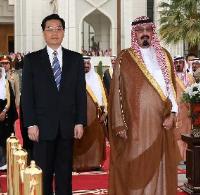The “Arab Spring” that started early in 2011 has shaken the entire Middle East. Rulers who had reigned for decades have been toppled; power has changed hands; and the few regimes that are resisting changes are still undergoing tumultuous unrest. Beijing has been forced to face the rapidly changing developments and make adjustments both to monitor the potential repercussions at home and to protect its growing commercial interests in the region.
Beijing has responded to the events in the Middle East with tentative policy adjustments aimed at securing domestic stability and minimizing economic losses resulting from the unforseen and sudden events unfolding in the Arab world. It bears noting that there are major differences between the causes of the popular uprising in the Middle East and those driving the increasingly potent social unrest in China. Beijing also retains sufficient resources to dilute, isolate and suppress domestic dissent.
However, formulating and implementing an effective Middle East policy could be a far more daunting challenge for China, especially given its growing economic engagement with the region. Beijing has found to its dismay that the past policy of diplomatic ambivalence based on separating economics from politics in dealing with Middle Eastern countries is no longer tenable. It suddenly finds itself in the uncomfortable position of having to make explicit where it stands on issues such as good governance and human rights, and has to balance its support of the regimes in power with recognition of the aspirations of the populations in revolt against autocratic rulers in many of these countries. In short, staying aloof is rapidly becoming a luxury that China can ill afford.

